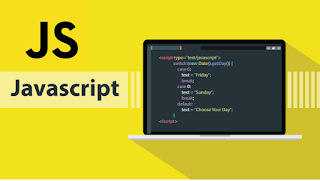What are Data Types?
In JavaScript, Data types are defined as what type of value can be stored inside the variables.
There are two types of data types in JavaScript.
- primitive datatypes(predefined)
- non-primitive data type (reference datatype)
Primitive Datatypes:
- primitive data types are immutable(non-modifiable) data types.
- Once a primitive data type is created, we cannot modify it.
There are seven primitive types in JavaScript
- Numbers - Integers, floats
- Strings - Any data under single quote, double quote, or backtick quote
- Booleans - true or false value
- Null - empty value or no value
- Undefined - a declared variable without a value
- Symbol - A unique value that can be generated by the Symbol constructor
- BigInt
Numbers:
- Numbers are integers and decimal values which can do all the arithmetic operations.
example:
// Number data type
let age = 35
const PI = 3.14 // pi a geometrical constant
console.log("age = ", age) // age value = 35
console.log("age type = ", typeof (age)); // Number
console.log("PI value = ", +PI); // PI Value = 3.14
console.log("PI value = ", typeof (PI)); // Number
String
- Strings are used to represent textual data, such as a sequence of characters.
- Single quotes: 'Hello'
- Double quotes: "Hello"
- Backticks: `Hello`
// string
let space = ' ' // an empty space string
let language = 'JavaScript'
console.log(space)
console.log("language = ", language); // JavaScript
console.log("type of language = ", typeof (language)); // String
- Single quotes and double quotes are practically the same and you can use either of them.
- Primitive data types are compared by their values. Let us compare different data values. See the example below
let numOne = 3
let numTwo = 3
console.log(numOne == numTwo) // true
let js = 'JavaScript'
let py = 'Python'
console.log(js == py) //false
let lightOn = true
let lightOff = false
console.log(lightOn == lightOff) // false
Boolean:
- It is used to represent a boolean value, which can be either true or false.
// Boolean
const isEligible = true;
console.log(isEligible) // true
Undefined:
- It represents a value that is not yet defined or initialized.
let name;
console.log(name); // undefined
console.log(typeof(name)) // undefined
Null:
- null data type means an empty value assigned to a variable
const age = null;
console.log(age);
console.log(typeof(age)) // object
Symbol:
- Symbols in JavaScript are used to represent a unique and immutable value.
const firstName = symbol('sai');
const lastName = symbol('veny');
console.log(firstName + ' ' + lastName)
BigInt:
- BigInt is a new numeric data type that can represent integers with arbitrary precision.
bigNum = 1234455566671n;
console.log(bigNum);
Non-primitive data types
- Non-primitive data types are modifiable or mutable.
- We can modify the value of non-primitive data types after it gets created.
- Non-primitive data types cannot be compared by value
There are 2 Non-Primitive data types
1. An object
2. An array
1. Array
- An array is a list of data values in a square bracket.
- Arrays can contain the same or different data types.
- Array values are referenced by their index.
- The array index starts at zero. the second element at index one, and the third element at index two, etc.
// creating array.
let nums = [1, 2, 3]
// changing array value 1 to 10 --> index 0 is 1
nums[0] = 10
//Outout
console.log(nums) // [10, 2, 3]
- As you can see, an array, which is a non-primitive data type is mutable
- Non-primitive data types cannot be compared by value. Even if two non-primitive data types have the same properties and values, they are not strictly equal
let num1 = [1, 2, 3]
let num2 = [1, 2, 3]
console.log(num1 == num1) // false- we do not compare non-primitive data types arrays, functions, or objects.
- Non-primitive values are referred to as reference types because they are being compared by reference instead of value.
- Two objects are only strictly equal if they refer to the same underlying object.
let nums = [1, 2, 3]
let numbers = nums
console.log(nums == numbers) // true
Object:
- Collection of value in the form of key-value pairs which can include properties and methods.
let user = {
name: "learn",
lastname: "javascript",
developer: true,
age: 20
}
console.log(user);
console.log(typeof user);

.png)


0 Comments:
Post a Comment
Do leave your comments